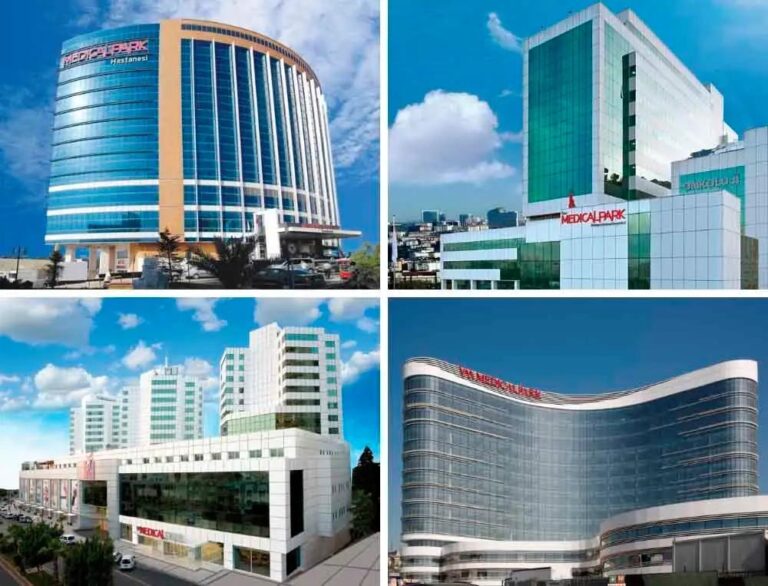TL;DR:
- Malaysian healthcare for retirees includes public and private options.
- Public hospitals have long wait times but affordable services.
- Private hospitals offer shorter wait times and more comfort at higher costs.
- Government programs like PeKa B40 scheme provide health subsidies and screenings.
- Common retiree health issues: hypertension, diabetes, joint disorders.
- Health insurance is crucial for foreign retirees.
- Malaysia’s healthcare is generally cheaper than in Western countries.
- Specialized senior clinics offer preventive care, chronic disease management, and mental health services.
- Private healthcare has faster service and modern facilities but is more expensive.
- Public healthcare is more wallet-friendly with longer wait times.
- Foreign retirees should budget for healthcare and consider comprehensive insurance plans.
Thinking of retiring in Malaysia but worried about healthcare costs? You’ve come to the right place. In this blog, we’ll dive into the affordability of healthcare for retirees in Malaysia. From public hospitals to private clinics, find out which options fit your budget and offer the best care. Stick around to learn about health insurance for expats and how Malaysia’s healthcare system stacks up against other countries!
How Does the Malaysian Healthcare System Serve Retirees?
The Malaysian healthcare system serves retirees through public and private options. Public hospitals offer a wide range of services, including emergency care, general surgeries, and treatments for chronic conditions. Private hospitals provide similar services but with shorter wait times and often more comfort.
Accessibility and quality of elderly care services are good. Many public hospitals have dedicated geriatric units. These units focus on managing common health conditions among seniors, like diabetes and heart diseases.
Government healthcare services for the elderly include subsidies and special programs. One notable initiative is the PeKa B40 scheme, covering basic health screenings and medical devices for older adults. Public hospitals in Malaysia also have long-term care options, such as nursing homes and day-care services, which are affordable.
Common health conditions among retirees include hypertension, diabetes, and joint disorders. Treatments for these are readily available in both public and private sectors. The government is proactive in managing these prevalent health conditions through public health campaigns and routine screenings.
Malaysia’s healthcare system does face some problems, like overcrowded public hospitals and long waiting times. However, private facilities often help to mitigate these issues. Long-term care facilities are expanding, with many offering specialized care for seniors with complex health needs.
For retirees, health insurance is vital. Foreign retirees should consider comprehensive insurance plans that cover both public and private healthcare options. This ensures better access and quality care. Many expats find healthcare in Malaysia more affordable and efficient compared to their home countries.
In sum, retirees in Malaysia benefit from a very structured and accessible healthcare system. Public hospitals offer a good range of services, and private hospitals provide an alternative with added comfort.
How Affordable is Healthcare for Retirees in Malaysia?
Is healthcare free in Malaysia for foreigners? No, healthcare is not free for foreigners in Malaysia. However, it is affordable compared to many Western countries. Public hospitals charge fees, but they are quite low. Private hospitals cost more but offer faster service and extra comfort.
Malaysia healthcare cost varies based on where you go. A visit to a public hospital might cost you $5 to $50, depending on the service. At private hospitals, a simple consultation could be around $30 to $60. More complex treatments or surgeries are also cheaper and often highly praised.
Health insurance options for foreign retirees are essential for better peace of mind. You can buy health insurance from local or international providers. Plans vary, but many offer good coverage for hospital stays, surgeries, and prescriptions. Some policies might also cover pre-existing conditions after a waiting period.
Affordable healthcare plans and subsidies for retirees are available more for locals. Foreign retirees can still find affordable healthcare without such subsidies. Staying in a city with several hospitals and clinics can also help keep costs down.
Comparing cost of healthcare in Malaysia vs. other countries, Malaysia usually wins for affordability. Healthcare in the US is much more expensive, even with insurance. Europe can also be pricier unless you are in a country with national healthcare that covers foreigners.
Budgeting for healthcare in retirement planning is crucial. Estimate your annual healthcare costs and include insurance premiums. Plan for unexpected medical events. By doing this, you can enjoy your retirement in Malaysia without financial stress.
Expatriate health insurance considerations include checking the list of covered hospitals and clinics. Make sure your plan covers both emergency care and regular doctor’s visits. Also, check whether the policy provides adequate coverage for chronic conditions.
Cost of medications and pharmaceutical services are generally low. Most common medications are affordable, even without insurance. However, if you need branded drugs, expect to pay more. Generic medications are readily available and cost a lot less.
What Specialized Medical Services Are Available for Retirees?
Does Malaysia have good health care? Yes, Malaysia offers outstanding health care for seniors. Retirees have access to specialized clinics designed just for them. These centers focus on senior-friendly healthcare services.
You can find many options for geriatric care. Expert medical specialists provide services tailored to older adults. They help manage chronic diseases which are common in retirees. Conditions like diabetes and heart disease are treated with care.
What about preventive healthcare for retirees? Malaysia excels here. Health clinics for seniors offer preventive services. This helps catch issues early, making treatment easier and less costly. Regular check-ups and screenings keep health on track. These clinics play a big role in preventive care. They offer complete health check-ups tailored to older adults.
Mental health is also important. Retirees have access to mental health services to help manage stress, anxiety, and depression. Expert counselors are available at senior health clinics. They offer support in a caring environment.
Chronic diseases need careful management. Senior health clinics focus on this as well. Doctors create personalized plans to keep retirees healthy. They manage medications and monitor health closely. The goal is to maintain a good quality of life.
Senior health clinics also offer specific health screenings. These can include tests for bone density, vision, and hearing. These tests help catch problems early. Doctors make sure seniors get the right treatment quickly.
The role of senior health clinics in preventive care is crucial. They keep retirees healthy and active. Regular visits to these clinics can prevent serious health issues. They offer complete care in one place, making it easy for retirees.
For more details, you can check out the Ministry of Health Malaysia site.
How Does Private Healthcare Compare to Public Healthcare in Malaysia?
Private healthcare in Malaysia often costs more than public options. However, it provides faster service and modern facilities. Public hospitals usually face long waiting times and crowded conditions, but they are more affordable.
Differences Between Public and Private Healthcare Services
In public hospitals, wait times can stretch for hours. This is because of a large influx of patients. In contrast, private hospitals offer quicker services but at a higher price.
Quality of Care in Private vs. Public Hospitals
Private hospitals boast newer equipment and cleaner facilities. They often have a higher staff-to-patient ratio. Public hospitals, although cheaper, may not offer the same level of comfort. Yet, both sectors have qualified doctors and nurses.
Costs Associated with Private Healthcare Facilities
The cost difference is significant. Private healthcare services come with higher fees. This includes charges for room stays and medical procedures. Public healthcare is subsidized, making it more wallet-friendly.
Accessibility and Waiting Times in Private vs. Public Sectors
Private hospitals can see you on the same day. Public facilities might have you wait weeks for an appointment. Accessibility is a big selling point for private healthcare.
Patient Satisfaction and Experience in Private Healthcare
Patients often report higher satisfaction with private healthcare. They praise the clean facilities and shorter wait times. Public hospitals, being busier, might lack in personal attention and comfort.
Availability of Specialist Consultations in Private Hospitals
You can easily find specialists in private hospitals. For example, consultations with cardiologists or orthopedic surgeons are more readily available. In public hospitals, seeing a specialist often involves long waits.
Comparison with Healthcare Systems in Other Countries
Many retirees find Malaysia’s private healthcare more affordable than in their home countries. Though pricier than public options, it’s cheaper compared to Western standards. This makes private healthcare a draw for many expatriates seeking quality care without breaking the bank.
Conclusion
The Malaysian healthcare system offers both public and private options for retirees. Public hospitals provide affordable and quality services, while private facilities offer specialized care with shorter wait times. Seniors can access specialized clinics, geriatric care, and preventive services tailored to their needs. Healthcare in Malaysia is cost-effective, especially with various insurance and subsidy options. Planning for healthcare expenses is crucial for a comfortable retirement. Ultimately, Malaysian healthcare serves retirees well, combining affordability, quality, and diverse services to meet all needs. Consider your options and plan wisely for a healthy retirement in Malaysia.












